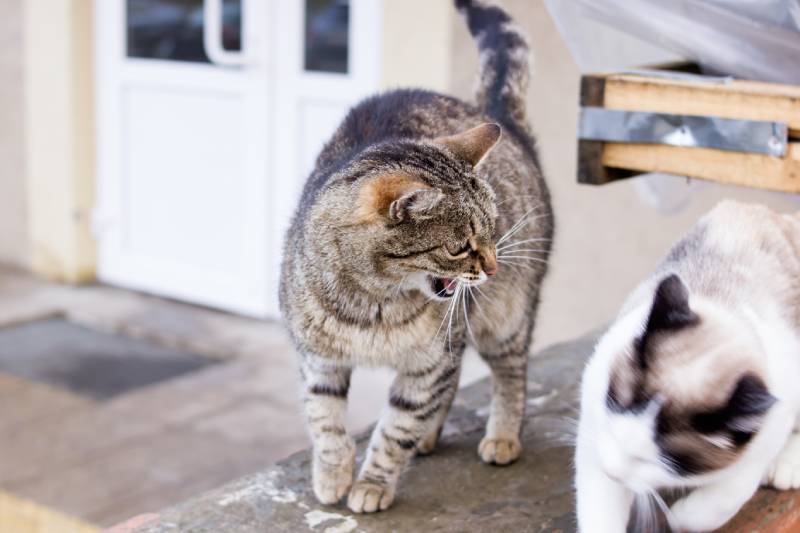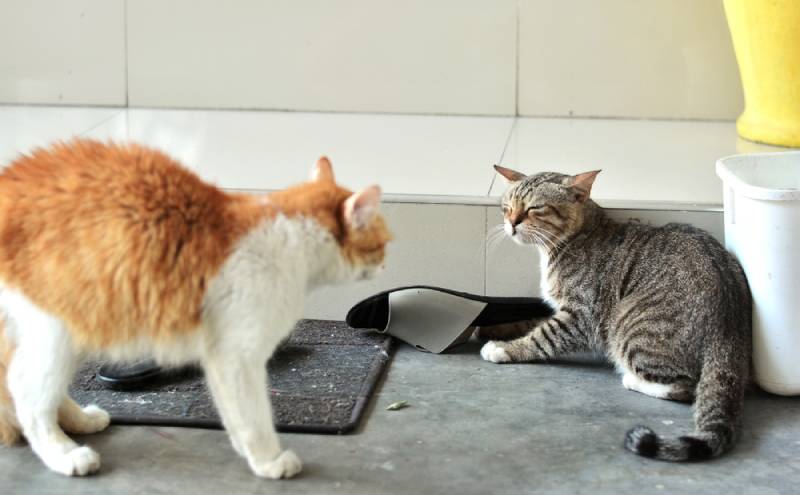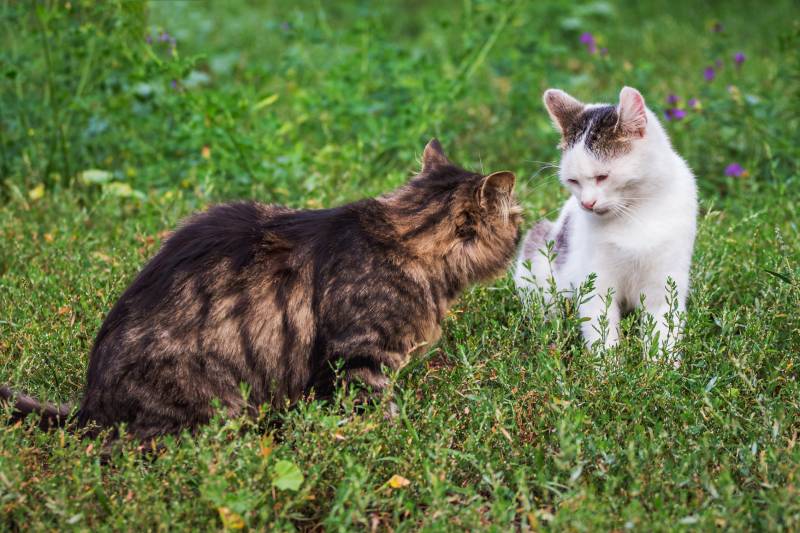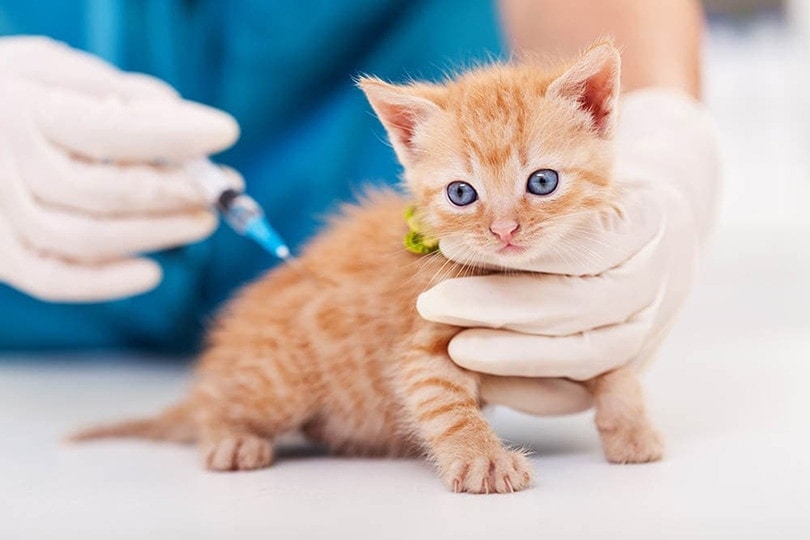When Will My Cat Stop Hissing At My New Kitten? Vet Approved Facts & Tips
By Ashley Bates
Updated on

If you brought home a new feline family member, it might go differently than you’d hoped. Your cats at home might not be so accepting of it—and they most certainly are not smitten by its cuteness like you are. So, they will need some time and convincing to accept the new kitten into the family.
So, if your existing kitty is bullying, hassling, hissing, or being mean to your kitten, know that it will likely pass. Your existing cat hissing at your new kitten usually lasts for about a week. But there are things you can do to acquaint the two! Soon, they will nap, groom, and play together without encouragement.
Why Cats Hiss
It might seem like cats are hissing to be bullies or even taunt another animal. This isn’t the case. Hissing is a response to environmental surroundings that are causing discomfort and insecurity in your cat.
If your cat is hissing when a kitten comes home, it is because they don’t fully understand what is happening or how to interact with the newcomer. Your kitten is an unfamiliar face, and until your cat gets used to it, hissing may be a part of everyday interactions for a while.
But after some time, they will likely stop all of the animosity. It’s entirely understandable for your cat to be afraid or unsure of the newcomer, as this is a really big change. But with proper introductions and supervised interactions, things can be better before you know it.
How Long Will the Hissing Continue

It depends on the individual cat and its socialization. Your cat might feel uncomfortable and hiss at the kitten. If this is the case, it is better to take a step back, keep the kitten and cat physically separated, and allow them to get used to each other’s smells. If you have a mesh door, this is the ideal divider as it allows them to also see each other. In most cases, it should take about a week before the hissing stops. But if a week has passed and your kitty still seems bothered, just remember to have patience and give them time.
How to Prevent Aggression
Before you attempt to put the felines together, allow them to exchange spaces and explore each other’s areas. Then you can allow them to meet in a neutral space under supervision. Kittens can be very fragile, and a cat’s claws and teeth can do some damage. A few hisses should be fine, but it can quickly change if your adult cat starts to get physically aggressive. Before things are getting a little out of hand, you must intervene right away.
If your adult cat decides to attack the kitten, it can get very hurt. It can also create a relationship barrier between the two in the future. You are there to prevent any physical aggression and show them that being in each other’s presence is positive.
Get Your New Duo Acquainted

Your cat might not be a big fan of the kitten right away, but there are ways you can change that quickly.
Supervised Introductions
Closely monitor every interaction the two kitties have in the beginning. You can gauge body language and mediate any problems by being directly involved. If you are there to reassure your kitties, they will have more faith in the process and may come around quickly.
Let the Older Cat Make the Moves
Don’t try to force the interaction on either cat. Your kitten is probably happy just to see another feline face, but your other, not so much. So let them smell, observe, and explore the space. Always make sure they can move away if they need to.
Give Equal Affection
Even though it’s tempting, try not to favor your kitten at first. When you are playing or petting, do it equally between the two of them. This will show your cat they’re not being replaced, and it’s an excellent way to get them on the same page.
Encourage Playtime
If you are the mediator, you can encourage playtime between the two of them. Choose a common ground, such as a toy mouse or wand and feather. You can entice play by getting their attention and even offer treats to solidify the bond.
It Might Not Work

That is a risk we all take when getting a new animal—not everything works according to plan. For example, you might get a dog for you, but it likes your significant other more. The same goes for any interaction—it might not go as planned.
You must understand that each cat has their personality. Some cats will give in and eventually love your new kitten. Others might never be much of a fan. They will probably coexist together fine, but your current cat might never want to be buddies the way you’d want.
But you can still find ways for the two to coexist just fine if you get creative.
Conclusion
All life changes take some getting used to. If you bring home a new kitten, they will probably become best friends in no time. But at first, your existing cat or cats might have difficulty accepting the changes.
With patience and appropriate introductions, they should become best buddies in no time. Rarely, they may never warm up like you hope they will—that’s part of the gamble of bringing two distinct personalities together. Just remember that this, too, shall pass.
Featured Image Credit: Ostanina Ekaterina, Shutterstock













